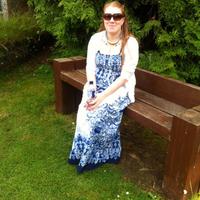Kirsty L Pattison
University of Glasgow, Theology and Religious Studies, Graduate Student
- Theology, Hebrew Language, Biblcal Studies, Hebrew Bible/Old Testament, Magic and the Occult (Anthropology Of Religion), Medieval History, and 12 moreHinduism, Buddhist Studies, Paganism, Reformation Studies, Reformation Theology, Ancient Egyptian Magical Texts, Enochian magic, Medieval Scotland, Medieval Scottish Literature, Early Modern Scotland, Scottish Witchcraft, and Renaissance Scotlandedit
- Graduated with a first in Theology and Religious studies from the University of Glasgow, and awarded the Trinity Prize for most distinguished female student and the John Hope prize for Ecclesiastical History. My PhD focuses on the reception of esoteric Christian ideas in late medieval/early modern Scotland.edit
The relationship between religion and magic holds a precarious position in history. One common understanding is that religion petitions while magic coerces. This understanding has seen magic stand diametrically opposed to religion, a... more
The relationship between religion and magic holds a precarious position in history. One common understanding is that religion petitions while magic coerces. This understanding has seen magic stand diametrically opposed to religion, a viewpoint which appears to develop in the early centuries of the Christian era. The Christian tradition has often regarded narratives of spiritual ascent, particularly accounts of the practice known as theurgy, as controversial, particularly due to concerns that they might clash with Christin doctrine. The term theurgy (Greek θεουργία or theourgia), which appears to have originated in the Chaldaean Oracles, is a compound word which literally translates as 'god work'. It was adopted in late antiquity to differentiate between the ritual acts and practice, in contrast to theology, which can be literally translated as 'god speech' or speech about god. The act of contemplation has been viewed as orthodox by Christian thinkers, while acts of theurgy have generally been rejected as magic. This paper explores how ideas of spiritual ascent and theurgy found in the narratives of the ancient philosophers and Jewish Kabbalists can contribute to a better understanding of the complexities of the relationship between religion and magic and blur the boundaries of magic as defined by Renaissance mages such as Marsilio Ficino (1433-1499) and Giovanni della Mirandola (1463-1494). This paper explores the benefits the boundaries between religion and magic of setting a new definition for the practice of theurgy for our understanding by comparing this ancient practice with the ideas of Ficino and Pico.
